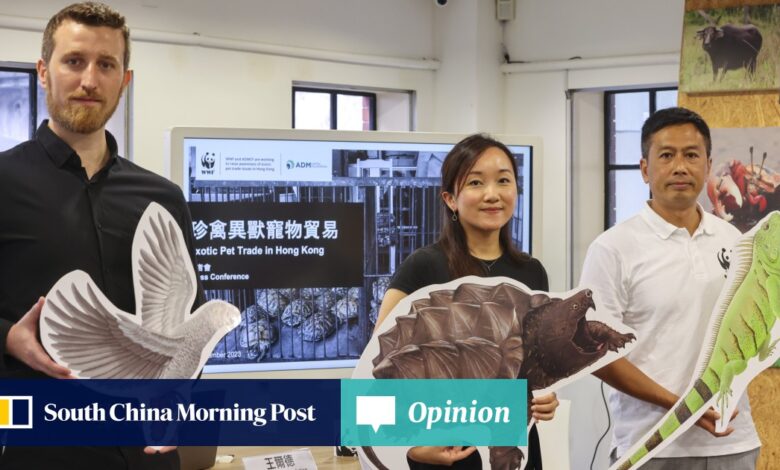Opinion: Hong Kong should lead the crackdown on wildlife smuggling and exotic pets

Hong Kong can make a big difference to its international standing by choosing the right issue to champion. It must be a significant global matter, and Hong Kong must be able to make a major difference.
There aren’t too many issues where government action would be a big shot in the arm. But there is one that plays to Chief Executive John Lee Ka-chiu’s strengths, with his background in the disciplinary services.
Lee rose through the police ranks because he was smart and honest. Never seeking the limelight, he kept his head down and worked hard. His sense of responsibility was strong, which he showed when he became undersecretary for security in 2012, then secretary for security in 2017, before being appointed chief secretary in 2021 and, finally, chief executive last year.
Law enforcers know their operations reveal only the tip of the iceberg. It tends to be the “small fry” smugglers who get caught but not their bosses, who are with organised crime syndicates involved in many types of trafficking – wildlife is only one lucrative activity.
Lee clearly supports law enforcement. He can make fighting wildlife crime a major legacy of his administration, especially as Hong Kong has the conditions and resources to act.
Trade, legal and illegal, involves many parties, including traders, transporters – such as airlines, airports, shipping lines and logistics companies – bankers and the food sector. The Chinese medicine trade is also relevant.
Major companies are beginning to report on their environmental, social and governance (ESG) performance. They are showing greater willingness to protect biodiversity.
Sam Inglis, a researcher at ADM Capital Foundation, said Hong Kong’s trade in endangered species included more than 120 jurisdictions and amounted to 24,500 tonnes of wildlife from 2015 to 2021, including many threatened with extinction – making our city the world’s third-largest importer despite our small size.
Half of the endangered live animals and plants brought into our city came from the wild, meaning their collection and trade directly affects ecosystems.
That’s why Lee needs to call on his bureaus and departments to work together with conservation experts to design a policy of maximum impact. Coordination is necessary with the mainland, as was the case with banning ivory, and the relevant United Nations bodies could all be partners, as could others such as Interpol, which has a wildlife enforcement team.
Crocodile a reminder of Hong Kong’s cruel wildlife trade
Crocodile a reminder of Hong Kong’s cruel wildlife trade
According to a research report published by ADM Capital Foundation last year, Hong Kong has a large exotic pet trade, which has grown and diversified, pointing towards a vast and high-value industry.
Over five years (2015-2019), Hong Kong imported 4 million live exotic animals from at least 84 countries, mostly reptiles. Many of the more than 700 species identified face extinction. In some years, nearly 800,000 animals were imported.
Covid-19 taught us the danger of wild animals transmitting diseases to humans. It may be that the health authorities have not investigated this together with those in charge of trade, which may be legal, and the authorities responsible for trafficking. But these issues are all related.
Hong Kong must get tough on poachers. Its biodiversity matters globally
Hong Kong must get tough on poachers. Its biodiversity matters globally
Awareness campaigns to educate the public can be run by the Agriculture, Fisheries and Conservation Department. Eventually, there will be a greater focus internationally on the exotic pet trade. Hong Kong can be at the forefront, starting now.
Lee can be assured that if he took steps to protect wildlife by addressing Hong Kong’s trade and focusing education and awareness to discourage the exotic pet trade, he would put Hong Kong on the global map in an area where the city can deliver a great service to the world.
Christine Loh is chief development strategist at the Institute for the Environment, Hong Kong University of Science and Technology, and a visiting scholar at Anderson School of Management, UCLA





